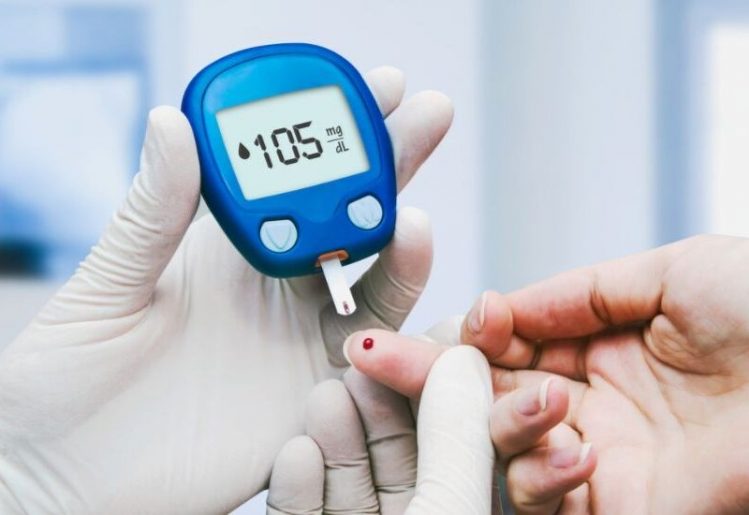Study Shows Fruits and Veggies Reduce Death Risk
Fruits and vegetables are essential sources of the fiber, nutrients and vitamins that our bodies need to thrive. We already know that a healthy plant-based diet can help us maintain healthy blood pressure, improve digestion and reduce our risks of developing certain types of cancer. Now, a new study suggests that fruits and veggies reduce death risk. More specifically, consuming a sufficient amount of each may help stave off heart disease.
Study Finds Fruits And Veggies Reduce Death Risk From Heart Disease
 Recently, a group of researchers analyzing records from a past Harvard University health study concluded that fruits and veggies reduce death risk from heart disease. These researchers estimate that by eating five or more servings of fruits and vegetables on a daily basis, the risk of developing heart disease may be decreased by up to 20 percent. Surprisingly, eating as much as three servings of fruits and veggies daily did not produce these same health benefits.
Recently, a group of researchers analyzing records from a past Harvard University health study concluded that fruits and veggies reduce death risk from heart disease. These researchers estimate that by eating five or more servings of fruits and vegetables on a daily basis, the risk of developing heart disease may be decreased by up to 20 percent. Surprisingly, eating as much as three servings of fruits and veggies daily did not produce these same health benefits.
By way of comparison, let's look at the guidelines set out by the U.S. Department of Agriculture defining the minimum number of servings of fruits and vegetables people should eat each day. For fruits, a minimum of one-and-a-half to two cups of fresh fruit is recommended. In addition, it is recommended that each individual eat between two to three cups of veggies each day. The CDC (Centers for Disease Control) supports these guidelines, but reports that only one in 10 people meet these standards.
A separate study published earlier this year found that eating an insufficient amount of fruits and vegetables could be blamed for as many as one in seven heart-related deaths. The same report also posited that eating too few vegetables may be responsible for one in every 12 heart disease deaths. What's more, the researchers determined that poor fruit intake was even more deadly than low vegetable intake. While eating an insufficient amount of vegetables caused close to one million deaths from cardiovascular disease, there were two million cardiovascular-related deaths attributed to low fruit consumption.
Victoria Miller, who co-authored the study, said these results shine a light on the need for greater nutrition education. She suggested that more community campaigns are needed to encourage populations to eat more fruits and vegetables.
More Research Highlights the Importance of a Plant-Based Diet
Another study, based out of Jinan, China, confirmed the crucial role that fruits and vegetables play in protecting against cardiovascular disease and cancer. This study was aimed at determining the long-term health consequences of eating a poor diet that lacked sufficient amounts of fruits and vegetables. The study involved reviewing the health records and dietary habits of 833,234 subjects and re-evaluating them with follow-up examinations between four and 26 years later.
As the subjects were contacted for follow-up exams, it was found that there had been a total of 56,423 deaths within the time frame of the study. Of those deaths, 11,512 of them could be attributed to cardiovascular disease, while 16,817 deaths resulted from various types of cancer.
The researchers determined that a higher consumption of fruits and vegetables was a contributing factor to a lower risk of premature death from all causes. This study also confirmed that five servings of fruits and vegetables per day is the ideal dietary requirement to achieve these health benefits. Fewer servings per day didn't positively impact the health of the individuals, while eating more than five servings of fruits and veggies daily didn't seem to increase the health benefits.
The Health Benefits of Eating More Fruits and Vegetables
While reducing your risk of developing cardiovascular disease and cancer are important reasons to increase your intake of fruits and veggies, they're not the only benefits to your health these foods can provide. Eating more fruits and vegetables has also been credited with the amazing benefits listed below.
Hypertension
If you have been diagnosed with high blood pressure, eating more fruits and vegetables can help you alleviate the condition. In one study, participants were asked to adopt a diet that consisted of plenty of fruits and vegetables, low-fat dairy and eliminated or reduced the amount of saturated fat. As a result, systolic blood pressure was lowered by an average of 11 mm Hg, while diastolic blood pressure dropped by about 6 mm Hg.
Type 2 Diabetes
 Currently, there is only limited research looking into the effects of eating fresh fruits on the development and treatment of diabetes. We already know that drinking fruit juice, which has high amounts of added sugar, is hazardous to those with diabetes and those at risk of developing the disease. However, some new research has found that eating fresh fruit, such as apples, blueberries and grapes, actually lowers the risk of developing type 2 diabetes. While fruit juices and fruits preserved in cans are likely to raise the risks of developing diabetes, eating leafy green vegetables and fresh fruit seems to lower those risks for both men and women.
Currently, there is only limited research looking into the effects of eating fresh fruits on the development and treatment of diabetes. We already know that drinking fruit juice, which has high amounts of added sugar, is hazardous to those with diabetes and those at risk of developing the disease. However, some new research has found that eating fresh fruit, such as apples, blueberries and grapes, actually lowers the risk of developing type 2 diabetes. While fruit juices and fruits preserved in cans are likely to raise the risks of developing diabetes, eating leafy green vegetables and fresh fruit seems to lower those risks for both men and women.
Irritable Bowel Syndrome
Fruits and vegetables are excellent sources of fiber, which is essential to a healthy digestive system. As fiber is processed, it absorbs the water and moisture in the intestinal tract and this can help alleviate the symptoms of irritable bowel syndrome. Additionally, more fiber will help the individual experience more frequent bowel movements, so issues with constipation and diverticulosis can be avoided.
Vision Problems
Finally, eating more fruits and vegetables will help keep your eyes in good condition. Typically, people develop cataracts and macular degeneration as they reach their senior years, but increasing the amount of plant-based foods you consume can reduce those risks. In particular, zeaxanthin and lutein, which are nutrients that give fruits and vegetables their bright colors, are especially effective in reducing the risks of developing cataracts.




